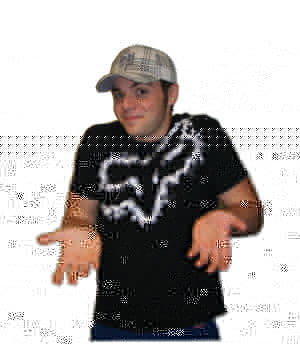What makes a person a person
What defines personhood as a whole? This question is the search for identity that all humankind faces and finds the answer in a social scene, or in society as a whole. I defy the arguments that what makes personhood is capacity and social standing. Quite frankly, we are more that just carbon and chemicals; we are more than just a social gathering. We each have a genetic structure that was defined in the womb.

This archived article was written by: Zak Konakis
What defines personhood as a whole? This question is the search for identity that all humankind faces and finds the answer in a social scene, or in society as a whole. I defy the arguments that what makes personhood is capacity and social standing. Quite frankly, we are more that just carbon and chemicals; we are more than just a social gathering. We each have a genetic structure that was defined in the womb.
As you may notice, the postmodern view of personhood excludes infants. Until a child is born and has matured to speech they have no humanity. Yet a pregnant woman who is murdered it is viewed as a double homicide, because the woman chose not to end the “organisms” life. It was involuntary and the fetus was then a person. When a woman has an abortion, however, it’s completely acceptable. Once again, the hypocrisy of postmodern thought.
In 1839 Schleiden and Scwaan developed the Cell Theory, which states that all living things originated from pre-existing cells. From this finding, pediatricians have consistently advocated that life begins at conception, and have used the term “child” in reference to a being from the moment of its conception.
After this new terming, Supreme Court Justice Harry Blackmun challenged this policy in the Roe vs. Wade case. The heart of the issue is based on the “independent viability of an embryo.” Using the term viability, the Supreme Court determined that a human life must be capable of independent survival. However, all human persons are dependant on other persons and their environment and rely upon oxygen, food, climate and general human interaction (i.e. murder.) for their survival to varying degrees throughout life.
These are the general rules of a human as defined by the Supreme Court: size is based on the idea that the individual exists as a newly formed zygote to the adult human being. What defines a person is not the number of cells in a body but the cell’s development.
There is a labeling error in the terming of pre-embryo because the level of development is completely irrelevant because there are millions of more cells in a grown adult than there are in an embryo, right?
Environment also affects person-hood apparently. Meaning, if you are still in the womb, you are not quite a person; no more than if you live in a different part of the world are you less of a human. So, just because an embryo or fetus is still sucking in amniotic fluid rather than oxygen that makes them non-human.
Dependence also factors into human life according to this ruling. If you have an umbilical cord you are not human, but then again the same can be said for someone with a feeding tube and an oxygen hose, of course?
There are too many exceptions to the rules, either all must be ruled out or all must be accepted. You cannot pick and choose which ones live and which ones die- we call that discrimination. If we all followed the standards of these rulings to decide whether or not we can ethically kill those around us we’d still be chucking the disabled off cliffs and throwing the elderly into volcanoes.
I remember a time in our country when we thought of other people as lesser. The only difference here is that the people we’re killing can’t voice their opinions yet. If you think that having an opinion makes your humanity then about 97 percent of the population are yet to discover their humanity, because many people do not have an opinion to call their own.




